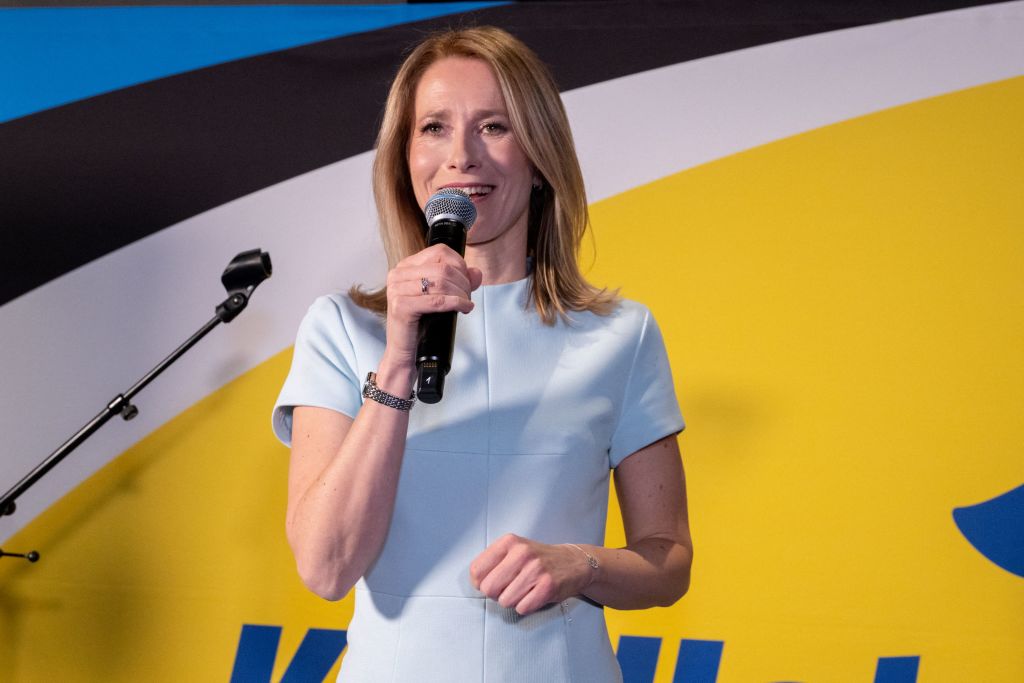
Estonia’s premier, one of NATO’s most vocal supporters of Ukraine, vowed to forge a new coalition government after securing a solid election victory over a far-right party, putting her in a strong position to extend her tenure.
Prime Minister Kaja Kallas, who has become popular at home and abroad for her strident stance against Moscow, said she had four options to assemble a majority in parliament and will conduct a round of talks with other party leaders. It may take a month for a new government to take office, she said, including addressing challenges to the ballot put forward by the nationalist EKRE party.
“Every option has pluses and minuses — there are several questions that need to be answered,” Kallas told reporters in Tallinn Monday. “I’ll do a round with other party leaders and come back to our leadership.”
Her victory provides a mandate for her pledge to maintain Estonia’s transatlantic course as a committed member of the European Union and NATO. Her Reform Party outperformed pre-election polls on Sunday, as EKRE stumbled, leaving it with no chance to form a government.
The premier touted her party’s election gains in each Estonian region after Reform took 31.2% of the vote, according to a count by the Estonian Electoral Commission. EKRE trailed with 16.1%, while the Centre Party under former Prime Minister Juri Ratas came third with 15.3%.
Kallas could continue with her current coalition with Estonia’s Social Democrats and the conservative Fatherland party, which would hold a strong majority in the 101-seat parliament. But she could also join up with a liberal newcomer, Estonia 200.
Another option would be to revive an alliance with Centre, with whom Kallas governed until July last year, when relations between the two parties collapsed.
Estonian President Alar Karis, who holds a ceremonial post and will name a candidate to seek a majority, earlier urged party leaders to respect the vote and move quickly.
“My wish is that time does not go to waste,” Karis said in a statement. “The current situation does not favor a long period of uncertainty.”
EKRE, which has accused Kallas’s government of “warmongering” and depleting the country’s military stockpiles, sought support from older and rural voters, but lost ground compared with the 2019 election. Its time in government under Ratas from 2019 to 2021 was buffeted by controversy over extremist statements by EKRE members.
EKRE’s leader, former Finance Minister Martin Helme, cast doubt on the trustworthiness of Estonia’s online voting system, saying he would challenge the results in court.
More Must-Reads from TIME
- Donald Trump Is TIME's 2024 Person of the Year
- Why We Chose Trump as Person of the Year
- Is Intermittent Fasting Good or Bad for You?
- The 100 Must-Read Books of 2024
- The 20 Best Christmas TV Episodes
- Column: If Optimism Feels Ridiculous Now, Try Hope
- The Future of Climate Action Is Trade Policy
- Merle Bombardieri Is Helping People Make the Baby Decision
Contact us at letters@time.com